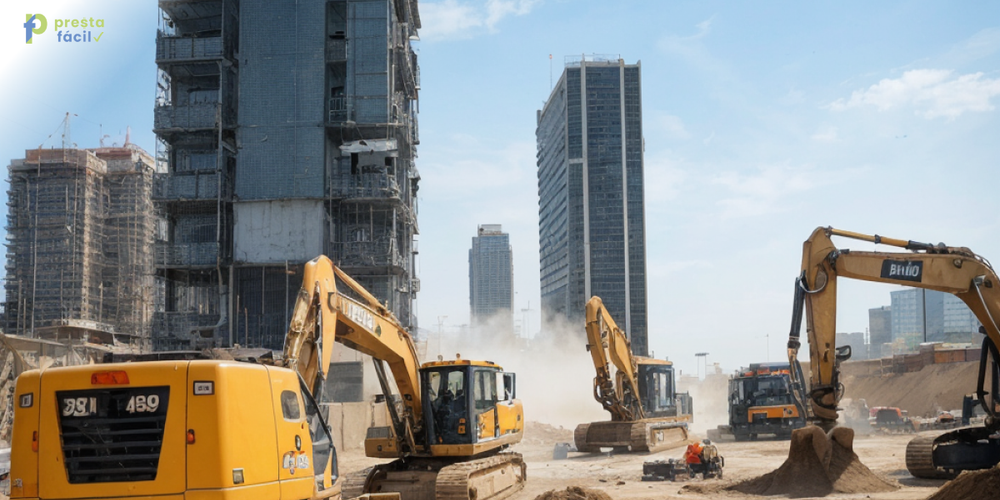Rent to Own Construction Equipment: A Smart Choice
The construction industry is dynamic and demands constant adaptation and financial acumen to succeed. Access to the right equipment can dramatically influence the pace and quality of work. Rent-to-own (RTO) agreements present a compelling option for construction companies, especially for contractors who need flexibility and financial efficiency. This article explores why RTO might just be the smart choice your business needs.
Contact us today to learn more about our rent-to-own options and start your application process.
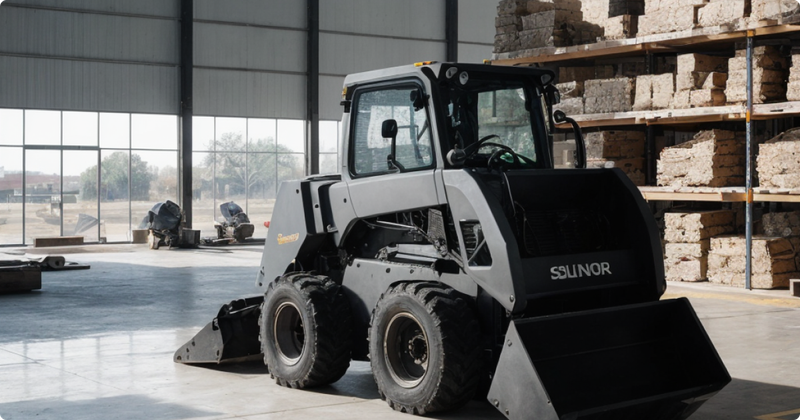
Understanding Rent-to-Own
Rent-to-own, commonly abbreviated as RTO, refers to an arrangement where you rent equipment with the option to buy it at the end of the rental period. This model can be particularly advantageous for construction equipment, where the upfront costs can be prohibitively high, and technological advancements are rapid.
You can find a full explanation in this article.
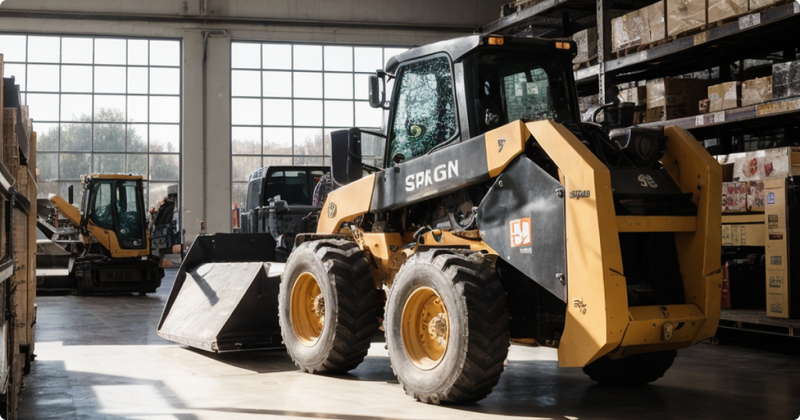
Benefits of Rent-to-Own Construction Equipment
The benefits of rent-to-own construction equipment include:
- Improved Cash Flow: Manage your finances more effectively by spreading out payments over time.
- Reduced Upfront Costs: Access essential equipment without the heavy upfront investment.
- Avoidance of Obsolescence: Stay up-to-date with the latest technology without committing to a full purchase.
Contractors gain access to necessary equipment without the full commitment of purchasing, providing a practical solution to manage resources effectively.
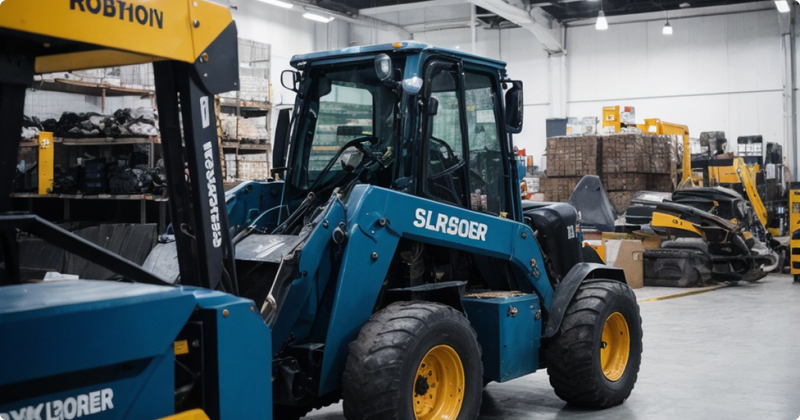
Financial Advantages
One of the key financial benefits of rent-to-own equipment is the ability to conserve capital while still accessing the necessary tools for projects. This section compares the cost considerations of RTO vs. buying, highlighting how RTO can lead to better financial management and tax advantages.
Strategic Benefits
The advantages of RTO for contractors extend beyond mere cost savings. The flexibility to match equipment needs specifically to project requirements—without the risks of ownership—is a significant strategic benefit. This adaptability is crucial for responding to changing project scopes and market conditions.
Access to Latest Technology
With RTO, contractors can upgrade to the latest technology without significant capital expenditure. This is essential for staying competitive in a technologically advancing industry.
Maintenance and Repair Considerations
Maintenance logistics are simplified with RTO agreements. Providers typically handle maintenance and repairs, reducing downtime and operational headaches for contractors.
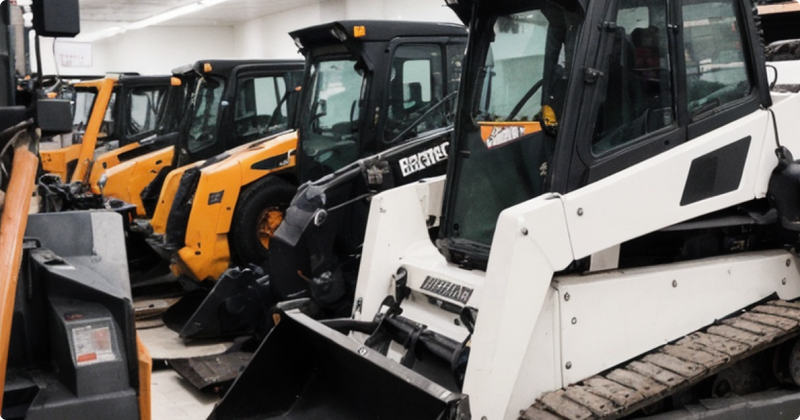
Choosing the Right RTO Provider
When selecting a rent-to-own (RTO) provider, Presta Fácil stands out as the premier choice for contractors. Presta Fácil is renowned for its transparency, offering clear and favorable terms that ensure you understand every aspect of your agreement. Our commitment to reliability means that the equipment you receive is of the highest standard, ready to meet the demands of your projects.
Understanding Our RTO Contracts
At Presta Fácil, we emphasize the importance of comprehending the details of your RTO contract. We make it our priority to highlight potential pitfalls upfront and strive to offer terms that are both fair and advantageous to our clients. This approach helps you avoid any surprises and ensures a beneficial partnership.
Availability of Construction Equipment
Presta Fácil provides a diverse range of construction equipment available for RTO programs, tailored to meet specific project needs. Whether you require heavy machinery for large-scale constructions or smaller equipment for intricate work, we have options that align with every type of project requirement.
Choosing Presta Fácil means accessing a wide variety of tools necessary for your success, with the flexibility of RTO financing.

Owning vs. Renting Construction Equipment
The decision between owning vs. renting construction equipment involves analyzing long-term costs, potential benefits, and the strategic flexibility offered by each option.
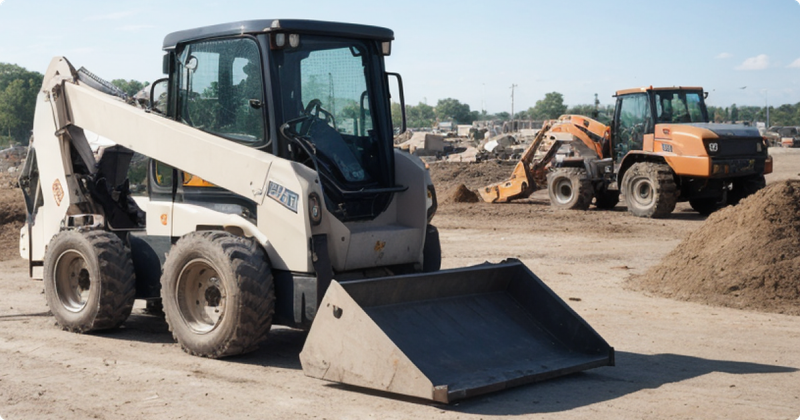
When to Choose Rent-to-Own
This section outlines scenarios where choosing rent-to-own is more advantageous, helping contractors make strategic decisions based on their project timelines, financial status, and future outlook.
The Future of RTO in Construction
The trend toward RTO is growing. This section discusses predictions for how RTO will continue to shape the construction industry, emphasizing its increasing popularity.
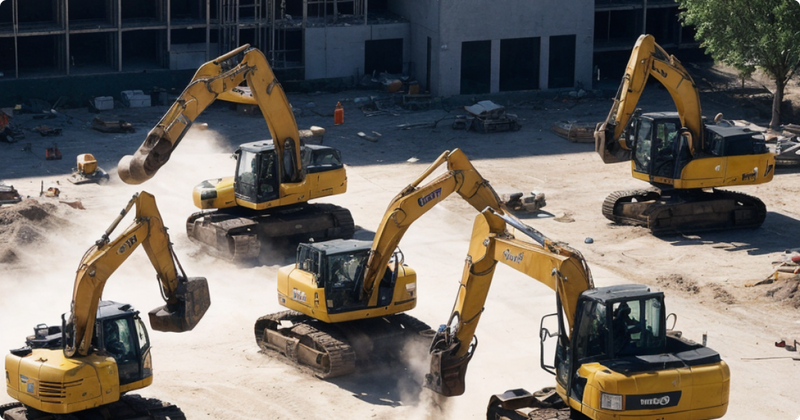
How to Get Started with RTO
Starting your rent-to-own process is simple. Fill out the online application, and you can quickly access the construction equipment you need.
Conclusion
Rent-to-own heavy equipment provides a mix of flexibility, financial efficiency, and access to modern technology, making it an intelligent choice for many contractors in the construction industry. By understanding and leveraging RTO, businesses can position themselves for growth and increased operational flexibility.
Contact Us to start your application process today.
FAQs
What are the primary benefits of rent-to-own for construction equipment?
Rent-to-own (RTO) agreements offer several advantages for construction equipment acquisition. They provide flexibility, allowing contractors to utilize the latest equipment without committing large amounts of capital upfront. This arrangement helps manage cash flow better by converting a potential large purchase into manageable monthly payments. Additionally, RTO plans typically include maintenance and repairs, reducing the burden on the contractor's operational resources. At the end of the term, the contractor has the option to purchase the equipment at a reduced price, which can be a significant financial benefit if the equipment proves essential and reliable. Learn more about rent-to-own advantages.
How does the financial aspect of rent-to-own compare to purchasing equipment outright?
Financially, rent-to-own agreements can be more appealing than purchasing equipment outright, particularly for contractors who face budget constraints or prefer to preserve their capital for other investments. While the total cost over the term of an RTO agreement may exceed the initial purchase price, this approach provides a way to spread out payments. This payment structure aids in better financial planning and cash flow management. Additionally, RTO agreements can offer tax benefits, as payments are often deductible as business expenses. Explore detailed financial comparisons here.
What should contractors look for when choosing an RTO provider?
When selecting a rent-to-own provider, contractors should prioritize transparency, reliability, and favorable terms. It's essential to choose providers who offer clear, straightforward contracts with no hidden fees. Contractors should also consider the provider's reputation for reliability and customer service, ensuring they are responsive and supportive throughout the agreement term. Lastly, examining the flexibility of terms, such as payment schedules, maintenance inclusions, and the option to buy at any point, is crucial to finding a deal that best suits their business needs. Read more about Presta Fácil and make the right decision.
What are the risks associated with rent-to-own agreements?
Rent-to-own agreements, while beneficial in many ways, carry certain risks such as higher overall costs in the long term compared to outright purchases. There is also the risk of entering into contracts with unfavorable terms due to insufficient understanding of the conditions or hidden fees. Equipment obsolescence is another risk, as contractors might end up owning outdated technology if they choose to purchase at the end of the RTO term. Ensuring thorough contract review and considering future technology trends are vital steps to mitigate these risks. Discover more about managing RTO risks.
Under what circumstances should a contractor consider rent-to-own over buying or leasing?
Contractors should consider rent-to-own over buying or leasing when they need to conserve cash flow, test equipment before committing to a full purchase, or when they anticipate the possibility of wanting to own the equipment without paying the full price upfront. RTO is particularly advantageous for newer or smaller operations that might not have the financial stability to purchase expensive equipment outright, or for those who face uncertain future equipment needs. This method provides the flexibility to adapt to changing business conditions and technology advancements. Learn when to choose RTO over other options.
